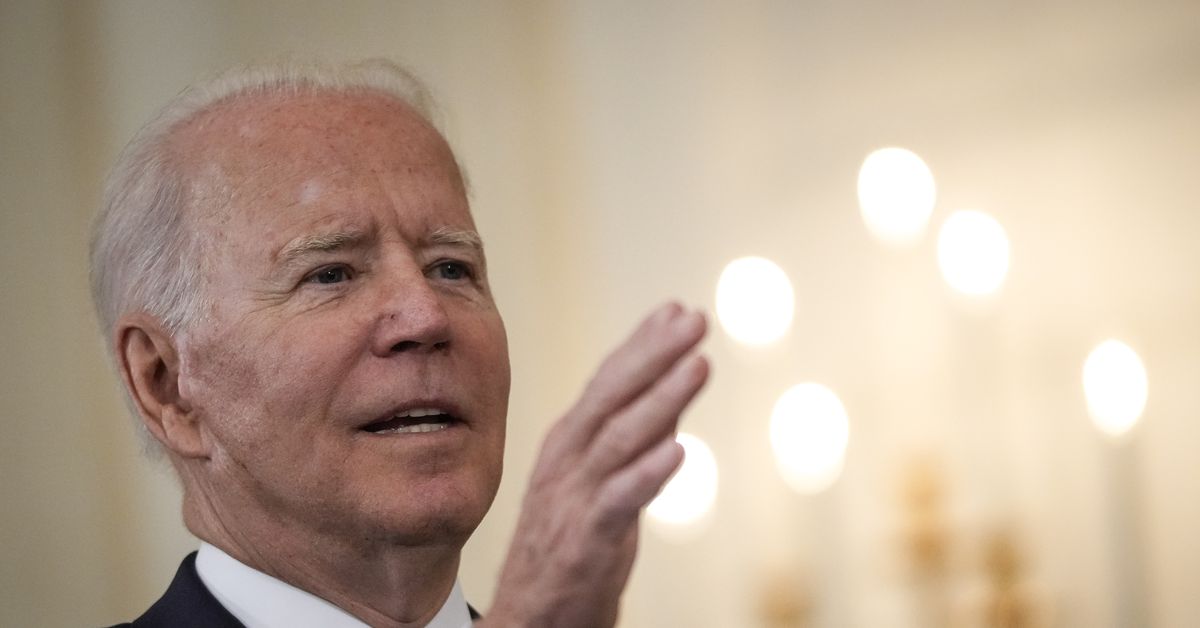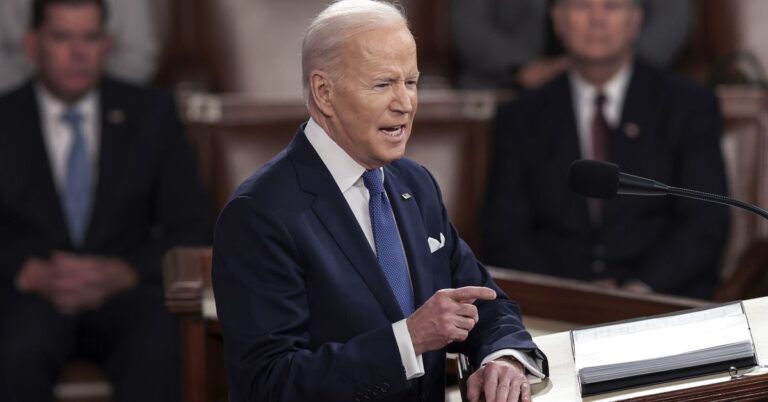
Big Tech has yet another reason to be worried about the threat of US government regulation.
President Joe Biden announced Tuesday he is nominating Jonathan Kanter, a known legal foe of Google and other major tech companies, to head the Department of Justice’s antitrust division. If confirmed to his post by the Senate, Kanter will have the power to take on cases to break up Big Tech companies or otherwise limit the size of their businesses. And as head of the DOJ antitrust division, Kanter would also decide how to proceed with the Trump administration’s landmark case against Google for engaging in allegedly anti-competitive business practices.
Kanter has long argued that regulators have failed to enforce anti-monopoly antitrust laws against the tech sector, and that this lack of regulation is hurting small businesses and American consumers. If he is confirmed, Kanter will join two other recent Biden appointees: Lina Khan, who heads the FTC; and Tim Wu, a top White House adviser on economic policy. Like Kanter, both built their careers making the case that the government needs to more aggressively regulate tech companies like Google, Facebook, Amazon, and Apple.
These three powerful government figures are a worrisome trifecta for Google and other major tech firms. And their ascension to power is welcome news to advocates of breaking up Big Tech (so much so that some key political supporters have been touting “Wu & Khan & Kanter” mugs on social media).
“With Lina Khan at the Federal Trade Commission, Tim Wu on the National Economic Council, and dozens of other strong leaders in departments and agencies throughout the Biden administration, Jonathan Kanter’s nomination to lead the Antitrust Division spells the end of the era of unaccountable monopoly power in America,” Barry Lynn, executive director of the policy group Open Markets Institute, wrote in a statement.
Other anti-monopoly policy groups like the American Economic Liberties Project put out similarly positive statements.
“President Biden has made an excellent choice to lead the DOJ’s antitrust division,” wrote Sarah Miller, executive director of the American Economic Liberties Project, in a statement to Recode. “Jonathan Kanter has the experience, values, and intellectual foresight to ensure that antitrust enforcement under the Biden administration delivers for working people, small businesses, and communities. … He has crafted many of the most successful legal arguments driving the major antitrust investigations into Big Tech.”
Kanter is an antitrust lawyer who has previously represented Google competitors like Yelp and Microsoft.
The Senate will need to confirm Kanter to secure his position. Sens. Amy Klobuchar (D-M), who is sponsoring bills regulating tech, and Elizabeth Warren (D-MA) immediately released statements in support.
“I look forward to working together to ensure that the Antitrust Division will fulfill its mission to vigorously enforce the antitrust laws, protect consumers, and promote competition throughout our economy, and I will continue to push to secure additional resources to support this critical effort,” wrote Klobuchar, in part, in a statement.
Kanter’s experience representing Google’s competitors in the past may be something that Google tries to use against him, according to CNBC. The company could push for him to be recused from cases involving Google by arguing that these create a conflict of interest for him.
That’s already started happening with Khan: Amazon and Facebook have both petitioned Khan to recuse herself from cases involving their companies because of her past criticism of their business practices. Khan has the advantage of broad bipartisan support in Congress, so it’s unclear if these petitions will succeed.
Considering that Trump’s nominee to head the antitrust division, Makan Delrahim, had to recuse himself for the opposite reason — he advised Google earlier in his career — these new appointees’ histories of being critical of the tech sector says a lot about current attitudes in Washington toward the industry.
Kanter’s appointment is also a reflection of Biden’s larger policy agenda of reining in Silicon Valley’s power. Earlier this month, Biden issued an executive order on competition, directing government agencies like the FTC to more closely scrutinize the tech sector. And recently, he has been increasingly critical of social media companies like Facebook for allowing the proliferation of misinformation about topics like Covid-19 on their platforms.
It’s true that lawmakers and regulators have been urging more antitrust scrutiny of Big Tech for a while. But these efforts and appointments signal a shift: Rather than just talking about antitrust enforcement, the government may finally be ready to take some action.






